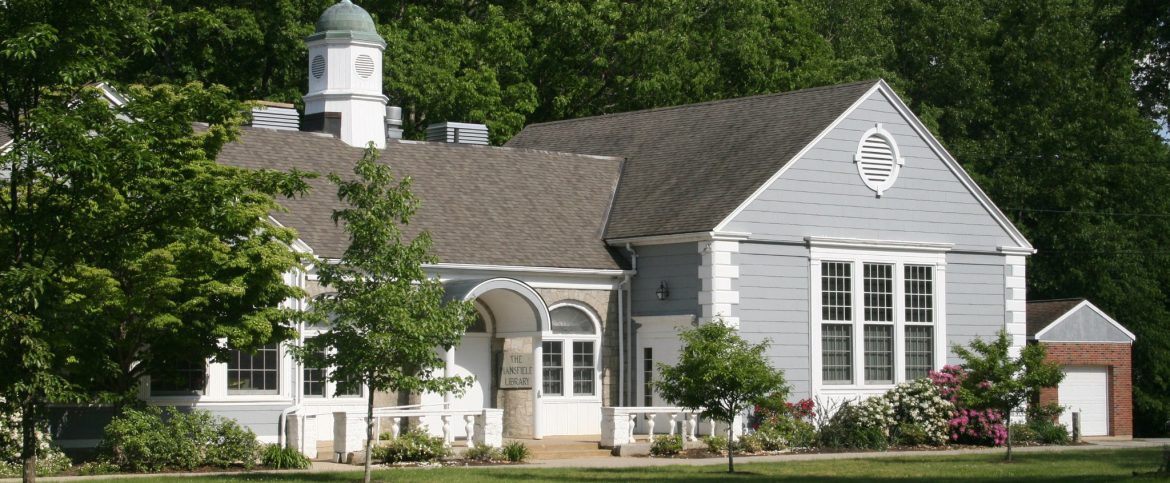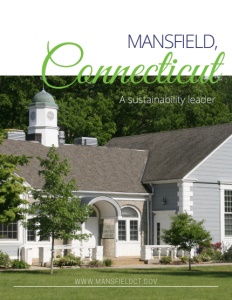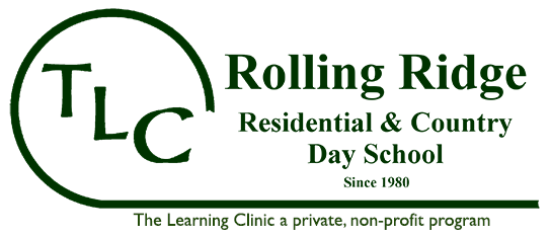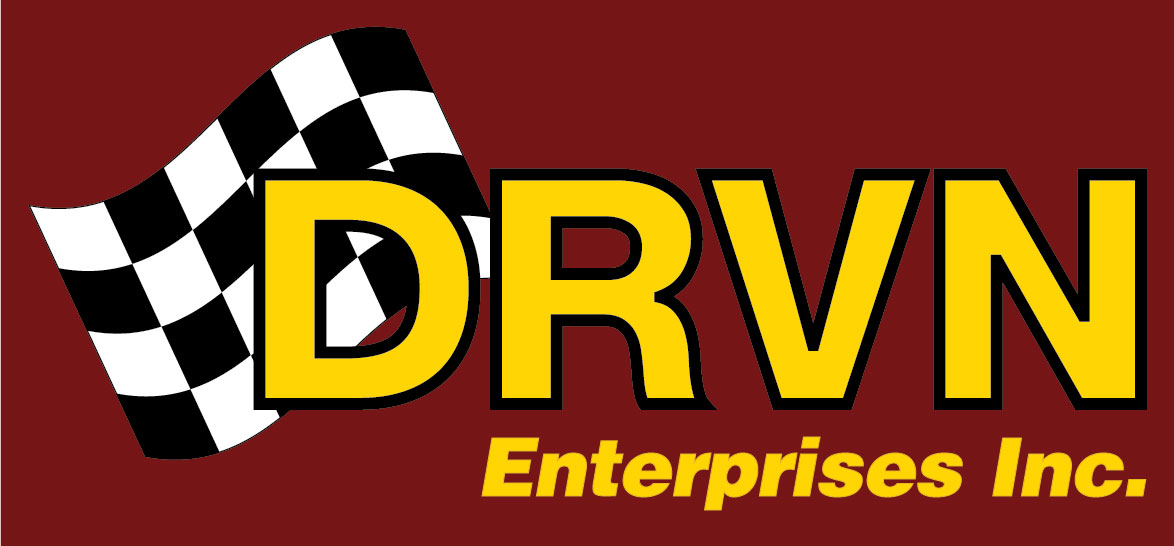Mansfield, Connecticut
A sustainability leader
Business View Magazine interviews Derrik Kennedy, Town Manager of Mansfield, CT, as part of our focus on best sustainable practices of American cities.
Mansfield, a town in Tolland County, Connecticut was first incorporated in 1702 and named after Major Moses Mansfield, the original owner of the town site. Most of its early settlers were farmers and for many years, Mansfield remained largely a rural town. As time went by, nearby rivers powered saw and grist mills, and during the 19th century, textiles, steel products, bits and augers, bells, bronze cannons, gunpowder, and organ pipes were manufactured in the town. The first silk mill in the United States was built at Hanks Mill in 1810, and for many years, Mansfield led the country in silk production.
The Storrs Agricultural School was established in 1881 in the community of Storrs, which then became the University of Connecticut, now one of the largest employers in eastern Connecticut, and according to U.S. News and World Report, the number one public research university in New England, and in the top 25 in the nation. Approximately 12-14,000 students of its total enrollment of 32,000 are added to the 14,000 residents of Mansfield, giving the town an official population of between 26 and 28,000.
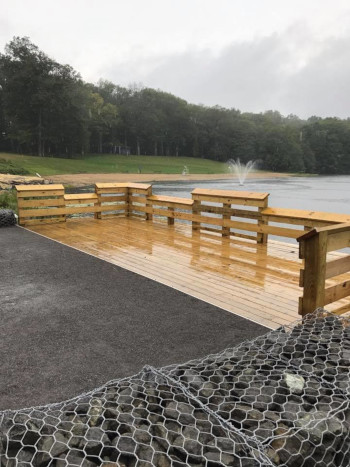 Mansfield comprises 45 square miles and enjoys a moderate amount of protected open space, notably Mansfield Hollow State Park, eight town parks and preserves, land held by the University of Connecticut, and numerous Joshua’s Trust properties, a non-profit conservation organization that protects more than 4,500 acres. Three large farms operate within Mansfield, including Mountain Dairy, which has been producing and processing milk under the stewardship of one family since 1871.
Mansfield comprises 45 square miles and enjoys a moderate amount of protected open space, notably Mansfield Hollow State Park, eight town parks and preserves, land held by the University of Connecticut, and numerous Joshua’s Trust properties, a non-profit conservation organization that protects more than 4,500 acres. Three large farms operate within Mansfield, including Mountain Dairy, which has been producing and processing milk under the stewardship of one family since 1871.
Derrik Kennedy was named Town Manager of Mansfield in February 2018, a time when several events commingled to usher in some interesting development opportunities. “Mansfield has a very agricultural-based history,” he explains. “So, you can imagine the feelings of a community that sees itself coming of age and the different mindsets and attitudes about development. But in this area, the community said ‘we think that development is a good idea.’”
The area in question is called Four Corners in the northwest part of town and the community’s bid to help spur development there came in the form of a bond referendum to support expansion of Mansfield’s sewer system. “Several years ago, the town asked the residents to support bonding for a sewer expansion in that area with the hope that the state would kick in money, and last May, the State Bond Commission decided to bond and fund one third of the project,” Kennedy reports. “It’s a $9 million project; the residents funded $6 million and the state put in another $3 million, so we have a fully-funded sewer expansion. That project is currently underway and should be wrapped up by December of this year.”
“Why that is so vital, and what we didn’t know at the time, was that the federal government decided to create Opportunity Zones via the Tax Bill of 2017,” Kennedy continues. “Every governor of each state is allowed to designate Opportunity Zones. A quarter of our town has now been designated and Four Corners lies in that zone. So, it’s the stars aligning in the sense that a project that has long been talked and debated about coming to fruition in order to spur economic development, at the same time that the Treasury created this tax incentive for people to invest in Opportunity Zones. And the sewer expansion goes right into that area.”
But like the man in the commercial says, “But wait, there’s more!” Parts of the University of Connecticut’s land holdings also lie within the new Opportunity Zone and Kennedy says that the town has been working with CERC, the Connecticut Economic Resource Center, to help the University and the town collaborate in deciding how to develop in the zone. “The town has highlighted a couple of places that we’d like to spur development – Four Corners being one of them – and the University has highlighted the two places where they’d like development,” Kennedy notes.
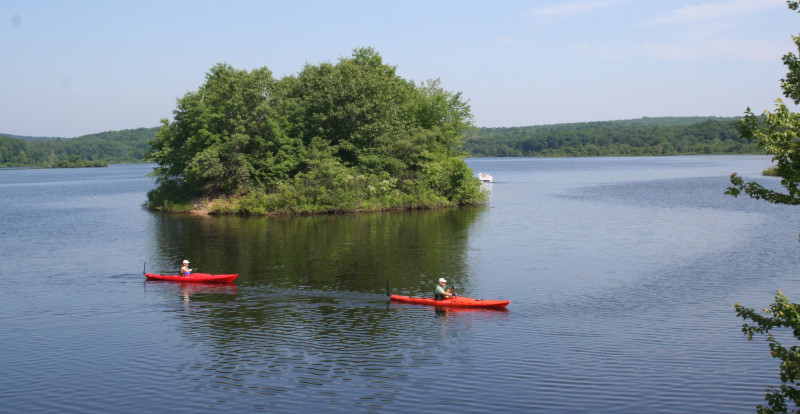
Based on that information, Kennedy reports that he has just wrapped up the second of two Opportunity Zone charettes and workshops with regional investors and developers, inviting them to market the town as the only non-urban Opportunity Zone in the state. “We feel there’s a lot of potential there,” he states. “And we’ve heard from members of the State Economic Development Department that the most interest in Opportunity Zone funding will come to those communities who are on their way up, and we’ve been assured that we are and we feel that we are.”
“In the last three to six months, we have had contacts with developers the likes of which Mansfield has never seen,” he adds. “We are getting one new phone call a week with interest in developing in our town. So, our goal, working with CERC and the University, is to make sure that we’re all on the same page on how we want to do it. So, it’s not a hodge-podge approach; it’s a planned, smart-growth approach to make sure that any development that happens on the University campus collaborates with any development that might be happening off-campus, and vice versa. We’re very excited about that and we feel that we’re a leader in the State of Connecticut in moving forward our Opportunity Zone to the business community.”
Kennedy adds that another one of Mansfield’s advantages to potential new developers is the town’s reputation as a progressive community in the realm of sustainable practices and activities. Connecticut has a program called Sustainable CT that rewards municipalities with various levels of certification based on their culture of sustainability and the level of achievement they have reached in promulgating green programs and actions.
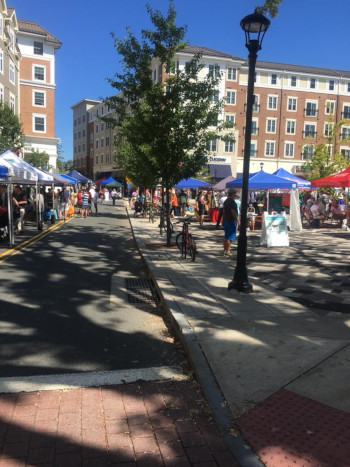 “We haven’t applied for our recognition yet because we’re truly trying to make sustainability a part of our culture in the town,” Kennedy declares. “We’ve brought together all of our relevant boards and commissions and had several workshops with them to make sure that they’re going back to their committees and are having discussions about sustainable practices that they can promote and start working on. That can range from planning and zoning, to historic districts, to arts advisory, to parks and recreation. When we started to tally up our points and all the things that we’re doing, we really are maxing out on all the possible points, which is a testament to what we’ve already done. So, we feel that when we apply, we’re going to prove to the state that we’re a leader in those types of practices and creating that culture.”
“We haven’t applied for our recognition yet because we’re truly trying to make sustainability a part of our culture in the town,” Kennedy declares. “We’ve brought together all of our relevant boards and commissions and had several workshops with them to make sure that they’re going back to their committees and are having discussions about sustainable practices that they can promote and start working on. That can range from planning and zoning, to historic districts, to arts advisory, to parks and recreation. When we started to tally up our points and all the things that we’re doing, we really are maxing out on all the possible points, which is a testament to what we’ve already done. So, we feel that when we apply, we’re going to prove to the state that we’re a leader in those types of practices and creating that culture.”
What will certainly be another testament to Mansfield’s fealty to sustainable practices is the new elementary school that the town is planning to build. Because of declining enrollment over the last decade or so, the Board of Education has decided to consolidate the town’s three elementary schools into one, and over the last year, Kennedy says he has been working with the school building committee to find an appropriate site and a workable budget. “But what’s the most amazing thing about this project has been that the committee is interested in building the first net-zero energy public elementary school in the State of Connecticut,” he states. “That means that the school will not only be a very energy efficient school to bring down the energy load that it would need to operate, but also that any energy that the school would need is produced on site through solar panels or geothermal wells and the like. It’s a very exciting opportunity and we plan to go to referendum this fall to bring it to the voters.”
Kennedy quips that when the town finally does apply for its Sustainable CT certification, it won’t receive either a bronze or silver rating, but an entirely new one, which he calls the Mansfield Award. And who knows? It could happen.
AT A GLANCE
WHO: Mansfield, Connecticut
WHAT: A town of approximately 26-28,000
WHERE: In Tolland County, Connecticut, east of Hartford
WEBSITE: www.mansfieldct.gov
